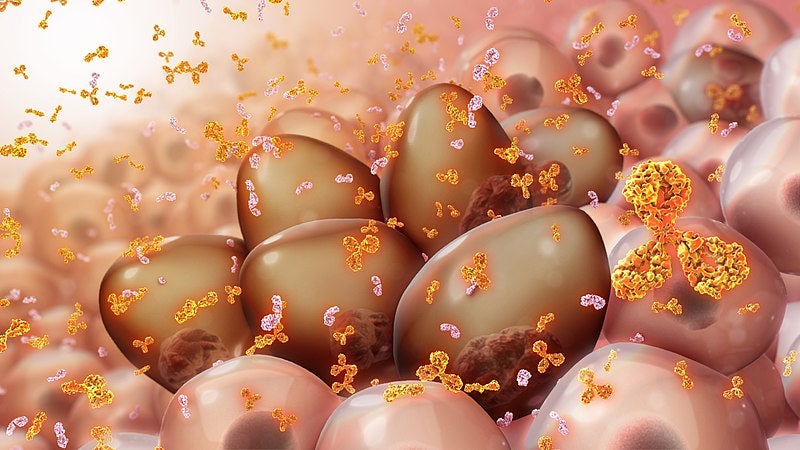
Bristol-Myers Squibb and bluebird bio have reported positive data from the ongoing Phase I study (CRB-402) of bb21217 for relapsed/refractory multiple myeloma (R/RMM) in patients who did not respond to prior treatments.
bb21217 is an investigational BCMA-targeted chimeric antigen receptor (CAR) T cell therapy being evaluated to treat patients with R/RMM.

Discover B2B Marketing That Performs
Combine business intelligence and editorial excellence to reach engaged professionals across 36 leading media platforms.
The therapy uses the idecabtagene vicleucel (ide-cel; bb2121) CAR molecule and is cultured with the PI3 kinase inhibitor (bb007) to enrich for T cells displaying a memory-like phenotype to increase the in vivo persistence of CAR T cells.
The two-part, open-label, multi-site Phase I CRB-402 study has been designed to assess the primary endpoint of safety and other pre-defined endpoints, including efficacy and pharmacokinetics measurements.
bluebird bio chief medical officer David Davidson said: “Early data from the CRB-402 study in heavily pre-treated patients (median of six prior lines) with relapsed/refractory multiple myeloma demonstrate the potential for durable responses following bb21217 CAR T cell treatment, with a median duration of response of 11.1 months at the 150 x 106 CAR+ T cell dose level.
“Consistent with the hypothesis underlying the bb21217 programme that memory-like phenotype T cells may survive longer in vivo, we have observed durable CAR T cell persistence in evaluable patients (n=2/2) with ongoing response at up to 18 months following treatment.”

US Tariffs are shifting - will you react or anticipate?
Don’t let policy changes catch you off guard. Stay proactive with real-time data and expert analysis.
By GlobalDataThe data includes results for 38 treated patients as of the 4 September cutoff date.
As part of the study, 24 patients were given bb21217 in the dose-escalation cohort at three dose levels and another 14 received the therapy in the dose-expansion cohort at two dose levels.
The companies are continuing to recruit additional patients in the study and are performing ongoing assessments of the functional persistence of bb21217.
A total of 74 patients are expected to be enrolled for CRB-402, which is currently in the dose-expansion phase.
The trial will further recruit patients and explore bb21217 at the 450 x 106 CAR+ T cells dose cohort, as well as assess functional persistence of bb21217 and durability of response.





